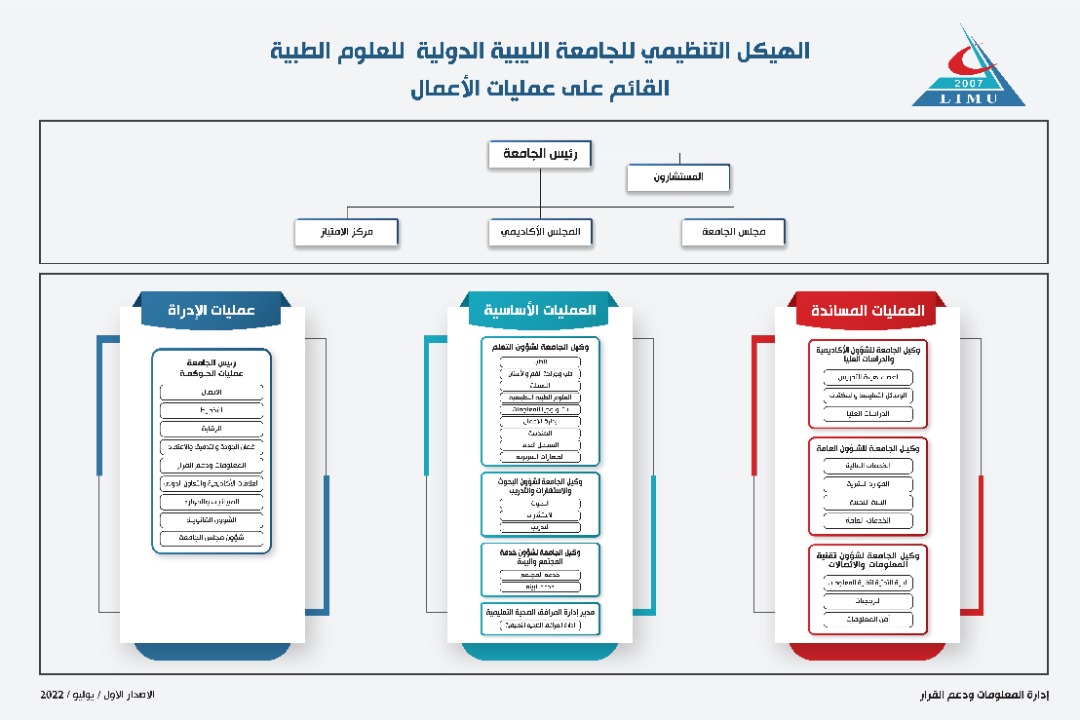University Management
The university is managed by a group of councils that all come together to keep the university superior locally and competitive at the Arab and international levels.
- University’s president .
- University Vice-Presidents:
- Vice Rector for Learning Affairs
- Vice Rector for Research and Consulting Affairs.
- Vice Rector for Community Service and Environment Affairs.
- Vice Rector for Public Affairs.
- Vice Rector for Information and Communication Technology Affairs.
- Vice Rector for Academic Affairs and Postgraduate Studies.
- Deans of colleges.
- Directors of centers and departments.
The internal regulations and procedures guides regulate the work system within the university’s colleges, centers, and various departments. The university seeks to achieve the highest levels of university performance, keeping pace with international standards, in a way that prepares it and its colleges for qualification for accreditation, which places on the shoulders of university councils (the university council, the academic council, and college councils) major responsibilities and huge tasks. It must be dealt with in an organized manner, according to a well-thought-out methodology. The councils of the Libyan International University for Medical Sciences are specialized in the tasks of general strategic guidance for the activities of the university and academic and administrative units, each within the scope of its competence.
The organizational structure based on business operations
Business Operations Management at the University (BPM) is the practices that emphasize effective management, including control, quality, maximization of outputs, and continuous improvement of business processes during the life cycle of operations. Business Operations Management (BPM) plays a role in developing and modifying information technology solutions as it helps to ensure consistency Application development activities with business processes and minimizing errors, minimizing waste, ensuring compliance with laws and regulations, rapid application of change, improving productivity and efficiency, and protecting against loss of institutional knowledge by identifying and formally documenting business processes and procedures, and, according to this approach, for the purposes of development and improvement in the work environment On May 27, 2021, the university adopted its organizational structure based on business operations

The strategic direction of the university
Over the course of fifteen years, the university issued three versions of the strategic plan:
- The first strategic plan for the years 2008-2013.
- The second strategic plan for the years 2016-2020
- The third strategic plan for the years 2021-2023 AD.
Strategic goals
- Developing learning strategies to meet the globalization and international competition requirements
- Developing knowledge capital.
- Developing awareness programs on noble values.
- Raise health, safety and environment
- Achieve a lucrative financial return.
- Develop institutional capability
- Developing human capital
- Develop business process management system
- Develop automation of teaching and administration
UNIVERSITY VISION
The University will become a Center of Excellence in the field .
UNIVERITY MISSION
Graduating differentiated human resources for the labor market and future needs, and participating in community development and knowledge production..
University values
The Libyan International University for Medical Sciences is committed to core values, emanating from its principles, and compatible with its mission, which are:
University principles